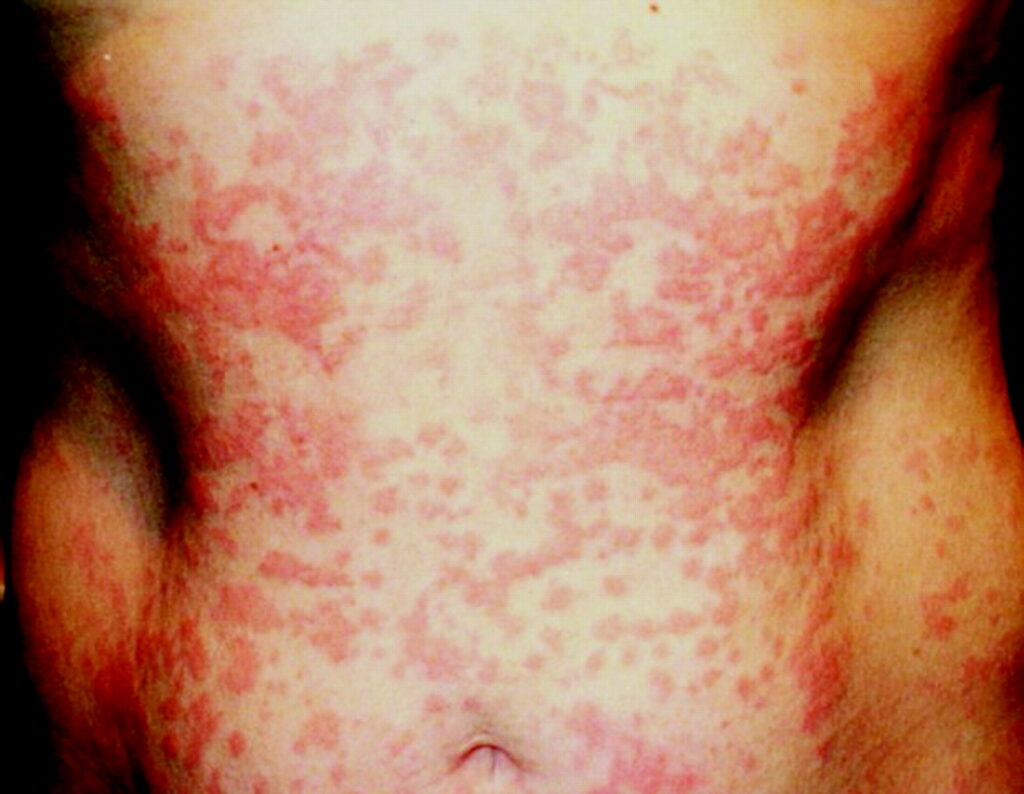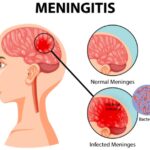Cryopyrin-Associated Periodic Syndrome (CAPS) is a rare and complex genetic disorder that primarily affects the immune system. It is characterized by recurrent episodes of fever, skin rashes, and systemic inflammation, leading to significant discomfort and long-term health complications. Understanding CAPS is crucial for both patients and healthcare professionals, as early diagnosis and appropriate treatment can improve outcomes and prevent severe complications. This guide provides a detailed overview of CAPS, including its causes, symptoms, diagnostic process, and treatment options.

What is Cryopyrin-Associated Periodic Syndrome (CAPS)?
Cryopyrin-Associated Periodic Syndrome (CAPS) is a family of rare, autoinflammatory disorders caused by mutations in the NLRP3 gene, which encodes cryopyrin, a protein involved in regulating the body’s immune response. CAPS is part of a broader category of diseases known as autoinflammatory syndromes, where the body’s immune system mistakenly triggers inflammation without any apparent infection.
CAPS can manifest in several forms, including familial cold autoinflammatory syndrome (FCAS), Muckle-Wells syndrome (MWS), and neonatal-onset multisystem inflammatory disease (NOMID), with varying degrees of severity.
Causes of CAPS
CAPS is caused by mutations in the NLRP3 gene, which leads to the abnormal activation of the inflammasome—a key component of the immune system responsible for detecting and responding to infections. In CAPS, the inflammasome is activated inappropriately, resulting in chronic inflammation. This inflammation affects various organs and tissues, including the skin, joints, and kidneys, often leading to pain and damage over time.
These genetic mutations are typically inherited in an autosomal dominant manner, meaning that only one copy of the mutated gene is sufficient to cause the disorder. As a result, individuals with a parent who carries the mutation have a 50% chance of inheriting the condition.
Symptoms of CAPS
The symptoms of CAPS can vary significantly depending on the specific subtype, but common signs and symptoms include:
1. Recurrent Fever Episodes
One of the hallmark features of CAPS is recurrent, often debilitating fever episodes. These episodes can last for hours or days and are typically accompanied by other symptoms such as chills and malaise.
2. Skin Rashes and Urticaria
Most individuals with CAPS experience skin rashes, which can present as urticaria (hives) or erythematous lesions. These rashes are often triggered by temperature changes, such as exposure to cold air.
3. Joint Pain and Inflammation
Pain and inflammation in the joints are common in CAPS, leading to conditions such as arthritis. Joint stiffness and swelling are often present during flare-ups, further contributing to mobility issues and discomfort.
4. Hearing Loss
In some cases, individuals with CAPS may develop progressive hearing loss, particularly in the Muckle-Wells syndrome subtype.
5. Fatigue and Malaise
Chronic inflammation in CAPS can lead to feelings of fatigue, weakness, and a general sense of unwellness. This can significantly impact daily activities and quality of life.
6. Neurological Symptoms
In the case of NOMID, more severe neurological symptoms such as headaches, developmental delays, and cognitive impairments may occur, particularly in children.
Diagnosis of CAPS
Diagnosing CAPS can be challenging due to the variability in symptoms and their overlap with other conditions. However, a combination of clinical evaluation, family history, and genetic testing is typically used to establish a diagnosis.
1. Clinical Evaluation
Healthcare providers will perform a thorough physical examination and assess the patient’s symptoms, such as recurrent fevers, rashes, and joint pain. Family history is also crucial, as CAPS is inherited in an autosomal dominant pattern.
2. Genetic Testing
Genetic testing is the gold standard for diagnosing CAPS. A blood test to detect mutations in the NLRP3 gene can confirm the presence of the disorder. Identifying specific mutations can also help determine which subtype of CAPS the patient may have.
3. Laboratory Tests
Blood tests may show elevated levels of inflammatory markers, such as C-reactive protein (CRP) and erythrocyte sedimentation rate (ESR), indicating systemic inflammation. However, these tests are not specific to CAPS and are used to support the clinical diagnosis.
Treatment Options for CAPS
While there is no cure for CAPS, treatment options are available to manage symptoms and reduce inflammation. The primary goal of treatment is to prevent flare-ups, alleviate symptoms, and improve the patient’s quality of life.
1. Anti-Inflammatory Medications
The cornerstone of treatment for CAPS involves the use of anti-inflammatory medications. Nonsteroidal anti-inflammatory drugs (NSAIDs) are often prescribed to manage pain and reduce inflammation during flare-ups.
2. Biologic Therapies
Biologic agents that target specific components of the immune system, such as interleukin-1 (IL-1) inhibitors, have shown significant promise in treating CAPS. Medications like anakinra (Kineret) and canakinumab (Ilaris) are commonly used to block the activity of IL-1, which plays a central role in the inflammatory process of CAPS.
3. Corticosteroids
In some cases, corticosteroids may be prescribed to manage acute inflammation. However, long-term use of steroids is generally avoided due to the risk of side effects, such as osteoporosis and weight gain.
4. Symptom Management
In addition to specific treatments, symptomatic care is essential. This may include pain management strategies, physical therapy to address joint pain, and hearing aids for those with hearing loss. Regular monitoring of kidney function and other organs affected by inflammation is also crucial.
Prognosis and Long-Term Management
With appropriate treatment, individuals with CAPS can manage the condition effectively and maintain a good quality of life. However, untreated or poorly controlled CAPS can lead to long-term complications, including joint damage, hearing loss, and renal issues. Early diagnosis and intervention are critical to preventing these complications.
Regular follow-up with healthcare professionals, including genetic counseling and monitoring for disease progression, is recommended for long-term management. Additionally, patient education and support from CAPS advocacy groups can provide valuable resources for coping with the emotional and physical challenges associated with this rare condition.

